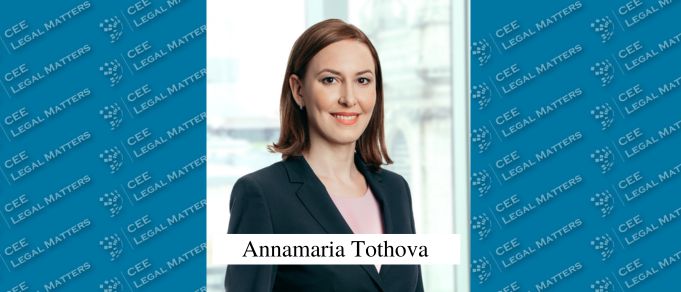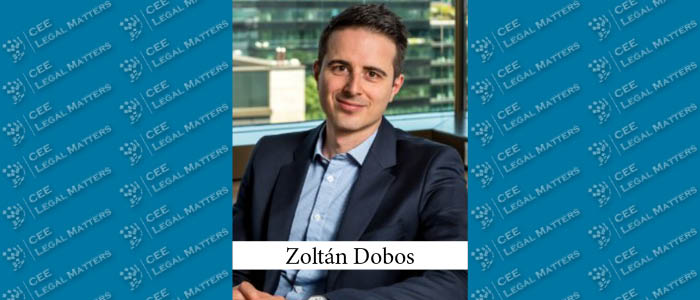Serbian Minister of Finance issued the Rulebook on interest rates that are considered to be in line with the arm’s length principle for the year 2024 (Rulebook).
Ministry of Energy of Ukraine Lifts Martial Law Restrictions on "Green" Tariff Payments
On 1 May 2024, the Ministry of Energy of Ukraine's Order No.136 as of 1 April 2024, came into effect, cancelling Order No.206 as of 15 June 2022. This change has significant implications for the renewable energy sector in Ukraine, as detailed below.
EUR 337.5 Million Fine Imposed on Mondelez International for Anticompetitive Behaviour
The European Commission has imposed a hefty EUR 337.5 million fine on Mondelēz International, Inc., the world-famous producer of Oreo, Milka and Toblerone, for restricting cross-border trade of chocolate, biscuits, and coffee products among EU Member States, in violation of EU competition regulations.
Draft Act Introduces Initial Regulatory Framework for Functioning of Green Hydrogen Market in Poland
The development of the hydrogen economy has been recognised as one of the priorities for the implementation of the European Green Deal, the main goal of which is to achieve climate neutrality in Europe by 2050. Poland is Europe's third-largest producer of hydrogen; however, its production is done exclusively with fossil fuels for companies' own needs. The regulations currently in force in Poland do not provide adequate conditions for the effective implementation of the strategy for the development of the green (renewable) hydrogen market.
Joinder of Parties in Multi-Party Arbitration
Given the complexity of modern legal traffic, the complex economic structures are becoming a standard in today’s business transactions. There is an increase in business activities which include a larger number of participants. Accordingly, disputes involving more than two subjects are occurring ever more often - especially on the international level. In light of this, the ICC International Court of Arbitration even noted an increase in multi-party arbitrations stating that one-third of ICC cases today involve multiple parties.[i]
The "Dupe" Trend and Competition
A popular practice among consumers under the age of 30 is to purposely search for better-value alternatives to items from well-known brands. Started to gain followers on social media, this idea has become a phenomenon, with entrepreneurs setting up e-stores, boldly claiming to sell dupes (short for "duplicates"). Others sell their own products "inspired" by current trends. And while supply is generally justified by demand, it raises the question of whether duplicates are an innocent more affordable alternative or an unfair profiting on the back of another. Public opinion is divided, but we are going to examine what the law says.
Legislative News from the Slovak Republic
We bring you a brief overview of important legislative news from the Slovak Republic that should not escape your attention.
Update: Austrian Government Publishes Bill on Contribution to Defence Costs in Criminal Proceedings
Discussing the draft bill aimed at increasing the contribution to legal costs for suspects not found guilty in criminal proceedings. Recently, the government has published its revised bill.
Supreme Court: Overtime Work Can Exist Without Employer’s Resolution or Written Request
In an era where social media has become an integral part of daily life, the issue of privacy protection is gaining increasing importance. Typically, social media platforms offer mechanisms to control access to the content which individuals share on their profiles, including the so-called profile “locking”. On the other hand, content on “unlocked” profiles is accessible to an unlimited number of people, allowing anyone who visits a particular profile to view the content created or published by its owner.
Whistleblower Protection Act Finally Adopted
After prolonged delays, the Estonian Parliament finally incorporated the EU Whistleblowing Directive into national law on 15 May 2024 by passing the Act on the Protection of Whistleblowers of Work-Related Violations of European Union Law (referred to as the Whistleblower Protection Act).
Regulation of Labor of Domestic Workers
On 25 April 2024, Ukrainian Parliament adopted the Law of Ukraine “On Amendments to Certain Legislative Acts of Ukraine Regarding the Regulation of Labour of Domestic Workers”, which introduces regulation of labour relations with domestic workers. The Law supplements the Labour Code of Ukraine (the “Labour Code”) with a new Chapter "Labor of Domestic Workers".
Checking In: Implementing Whistleblowing Regulations in CEE
For our Checking In feature, we reach out to partners and heads of practice across CEE to learn how specific practice areas are faring in their jurisdictions. For this piece, we asked firm Labor experts: Have whistleblowing regulations been implemented in your jurisdiction and would you advise companies to use an external solution or an in-house one? Why?
Slovakia: Construction Legislation from 1 April 2024
The new construction legislation approved in 2022, which aims, among other things, to speed up permitting processes, was to enter into force as a whole on 1 April 2024. This legislation divided the "old" Construction Act into two parts: spatial planning and construction.
Violation of Privacy Rights through Publication in the Media: Using Photos from Individuals Social Media Profiles
In an era where social media has become an integral part of daily life, the issue of privacy protection is gaining increasing importance. Typically, social media platforms offer mechanisms to control access to the content which individuals share on their profiles, including the so-called profile “locking”. On the other hand, content on “unlocked” profiles is accessible to an unlimited number of people, allowing anyone who visits a particular profile to view the content created or published by its owner.
Ukrainian Government Approves Regulation of State Support for Investment Projects with Significant Investments
On 26 April 2024, the Cabinet of Ministers of Ukraine (“Government”) approved the Procedure for Using Funds from the State Budget to Provide State Support for the Implementation of Investment Projects Involving Significant Investments (“Budget Procedure”).
The Supreme Court Has Ruled: Losers Must Pay!
In a previous article, we analyzed the phenomenon where courts typically reduce the attorney fees awarded to the winning party. This essentially forces the winner to incur unjustified losses, indirectly causing market distortion. Now, the Supreme Court has responded to this phenomenon with a precedent-setting, binding decision. Let's first look at the key developments and then how this affects litigation strategy!
Labour Law Changes: Impact of EU Directive on M&A Procedures
On 15 May 2024, amendments to the Labour Code of Ukraine came into effect aiming to regulate the rights and obligations of parties in labour relations during a change of control over business. The Ukrainian parliament adopted such amendments to align Ukrainian legislation with EU Directive 2001/23/EC, dated 12 March 2001.
The Hidden Pitfalls of Transfer Pricing
In the audit practice of the Hungarian Tax and Customs Administration (HTA), the audit of transfer pricing is gaining importance. Moreover, the relevant regulations are becoming more complex with each passing year. As the deadlines for transfer pricing documentation approach, it is worth reviewing what hidden pitfalls should be avoided when preparing documentation and providing data.






























